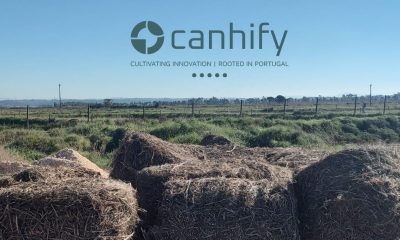The draconian anti-cannabis enforcement, pursued over the years in the United States, is one of the most insane things a society has ever done to itself and the new Cannabis Act is a step towards correcting that mistake.
On March 31, 2021, the Cannabis Regulation and Taxation Act (MRTA), better known as the Cannabis Act, came into effect in New York. It legalized adult-use cannabis in the state and established a framework to license the cultivation, processing, distribution, trade, delivery and on-site consumption of cannabis. The legislation created the Office of Cannabis Management (OCM), led by the Cannabis Control Board (CCB), which sets regulations and manages the state's cannabis industry. criminal offenses from previous offenders. The Cannabis Act requires that an effort be made to include various groups in the
pool of cannabis licenses through its social and economic equity initiative. These groups include minority and women-owned businesses, disabled service veterans, and struggling farmers. In addition, individuals who were convicted of a cannabis-related crime prior to the effective date of the Act are members of a community disproportionately affected by the application of the ban and have an income of less than 80% of the average income of the municipality in which reside. They too will receive special consideration for licensing.
The aim of the Cannabis Act is to issue 50% of licenses in the state to social and economic heritage licensees. Such applicants will have a lower licensing fee and will not be required to demonstrate a “property entitlement” in their application, but only need to provide a plan to acquire a “property entitlement”. In addition, the CCB proposed the creation of a conditional retail dispensary license, which will be available exclusively to entities with more than 51% control vested in individuals, or those who have a specific relationship with individuals who have been convicted of a crime of cannabis in New York prior to the enactment of the Cannabis Act, and who can demonstrate that they owned at least 10% of a business that has been profitable for at least two years.
In order to support applicants for social and economic equity, Governor Hochul proposed the creation of a $200 million Social Equity Cannabis Investment Fund. The Fund will be managed by the Dormitory Authority of the State of New York (DASNY), one of the largest issuers of municipal debt in the United States, with the objective of using funds from state and private investors to lease, renovate and rent commercial real estate, retail dispensaries for socially and economically equitable licensees, so that these licensees have “sufficient land, building and equipment to properly conduct the business activity for which they have been licensed”. Licensees of the conditional retail dispensaries described above are likely to be required to locate their business in such facilities.
In addition to establishing a regulated industry in New York, a significant component of the Cannabis Act is the elimination of cannabis convictions and criminal records. Generally, convictions for possession of up to 16 ounces (453 grams) or sale of up to 25 grams of cannabis are now eligible for expulsion. The reason so many individuals were negatively impacted by convictions for possession or use of cannabis is due to the fact that they had to check the “yes” box when applications for employment or residency asked if they had ever been convicted of a crime. The draconian anti-cannabis enforcement, pursued over the years in the United States, is one of the most insane things a society has ever done to itself and this component of the Cannabis Act is a step towards correcting that mistake.
_________________________________________________________________
Jeffrey Hoffman is an attorney in New York and his practice focuses on clients in the cannabis industry, including licensees in the adult use market, professionals in the medical cannabis space, and providers of cannabis-related products and services. With a particular interest in socially and economically equitable cannabis license applicants, Jeffrey also informs and assists those convicted of cannabis offenses to obtain such convictions expunged from their records. Jeffrey Hoffman can be contacted at info@420jurist.com or through his LinkedIn profile.
The draconian anti-cannabis enforcement, pursued over the years in the United States, is one of the most insane things a society has ever done to itself and the new Cannabis Law is a step towards correcting that mistake.
On March 31, 2021, the Marihuana Regulation & Taxation Act (MRTA), key parts of which are known as the Cannabis Law, came into effect in New York. It legalized adult-use cannabis in the state and established a framework for licensing the cultivation, processing, distribution, retail dispensing, delivery, and on-site consumption of cannabis. The legislation created the Office of Cannabis Management (OCM) led by the Cannabis Control Board (CCB) which will set regulations and manage the state's cannabis industry. Additionally, the law provides for the expungement of various cannabis convictions in order to clear the records of past offenders.
The Cannabis Law requires that an effort be made to include various groups in the cannabis license pool via its social and economic equity initiative. Such groups include minority and women owned businesses, service disabled veterans, and distressed farmers. Additionally, individuals who were impacted by the conviction of a cannabis-related offense prior to the effective date of the Cannabis Law, are a member of a community disproportionately impacted by the enforcement of cannabis prohibition, and have an income lower than 80% of the median income of the county in which they reside will also receive special consideration for licensing.
The goal of the Cannabis Law is to issue 50% of the licenses in the state to social and economic equity licensees, and such applicants shall have a lower licensing fee and shall not be required to demonstrate a “right to property” in their application, but need only provide a plan to acquire a “right to property.” Additionally, the CCB has proposed the creation of a conditional retail dispensary license which will be available exclusively to entities with 51%+ control vested in individuals, or those of a specific relationship to individuals, who were convicted of a cannabis offense in New York prior to the enactment of the Cannabis Law and who can demonstrate that they were, at a minimum, a 10% owner of a business that was profitable for at least 2 years.
In order to support social and economic equity applicants, Governor Hochul has proposed the creation of a $200M Social Equity Cannabis Investment Fund. The Fund will be managed by the Dormitory Authority of the State of New York (DASNY), one of the largest issuers of municipal debt in the United States, for the purpose of using state and private investor funds to lease, upfit, and rent commercial space to social and economic equity retail dispensary licensees such that social and economic licensees have “sufficient land, building and equipment to properly conduct the commercial activity for which they have been granted a license.” It is likely that conditional retail dispensary licenses described above will be required to locate their businesses in these facilities.
In addition to establishing a regulated cannabis industry in New York, a significant component of the Cannabis Law is the expungement of cannabis convictions from criminal records. Generally, convictions for possessing up to 16 ounces or selling up to 25 grams of cannabis are now eligible for expungement. The reason that so many individuals have been negatively impacted by convictions for possessing or using cannabis is due to the fact that they have had to check the “yes box” when asked for job or housing applications if they had ever been convicted of a crime. The draconian anti-cannabis enforcement pursued over the years in the United States is one of the most inane things a society has ever done to itself, and this component of the Cannabis Law is one step towards righting that wrong.
_________________________________________________________________
Jeffrey Hoffman is an attorney in New York whose practice focuses on clients in the cannabis industry, including licensees in the adult-use cannabis market, practitioners in the medical cannabis space, and cannabis adjacent product and service providers. He has a particular interest in social and economic equity cannabis license applicants, and he also informs and assists those convicted of cannabis offenses in getting such convictions expunged from their record. He can be reached via email at info@420jurist.com and you can follow him on LinkedIn: http://linkedin.com/in/heavyj










































